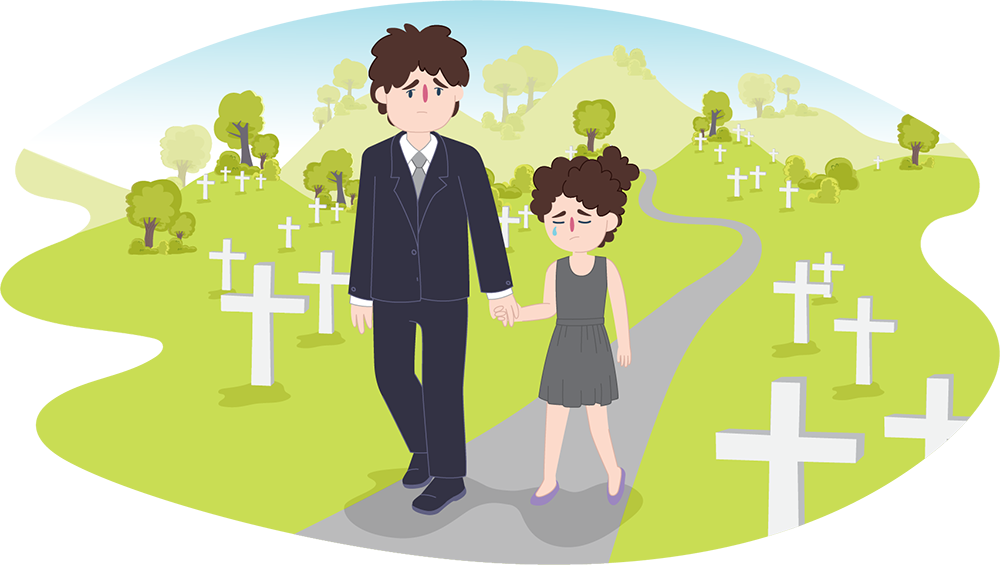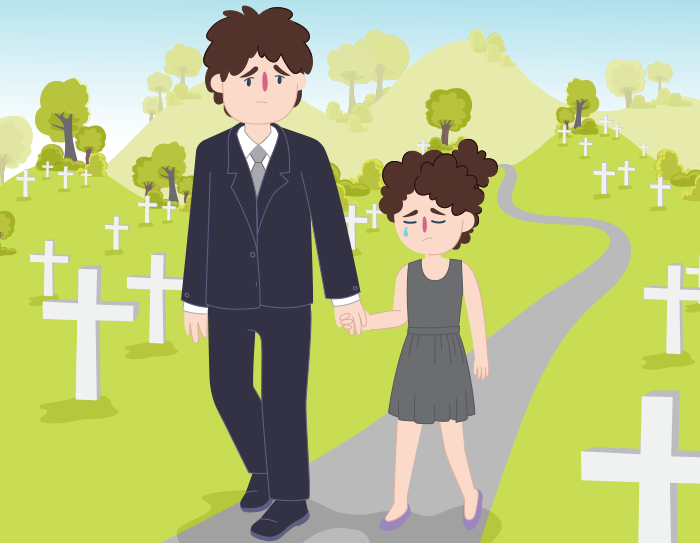Supporting a child after a suicide
When a child experiences grief after a suicide it can be difficult to know how to support them. Here’s some things for you to think about.

Grief and loss after a suicide
Grief after a suicide can be particularly difficult and it can feel different to other types of losses.
It's important to know that there’s no right or wrong way to grieve and there's no set timeline. We all handle loss differently.
Unique challenges that families can face after a suicide can include:
Fear of judgement or stigma: If a family member has died by suicide, many families can find it difficult to be open about this. Working on accepting this yourself can help ease this fear.
Powerful and conflicting feelings: We can feel like we’re on an emotional rollercoaster – all feelings are natural and there are no wrong feelings.
Unanswered questions of why: Sometimes we do not know why a loved one or friend chose to end their life and must work to find ways to accept this.
Complicated grief: Grief is usually something that ends naturally but a suicide may complicate the grieving process, causing it to last longer and feel more intense.
When children grieve
Seeing your child go through the emotional highs and lows can be hard. Try and allow children to feel the difficult emotions rather than rushing in to ‘fix’ the problem.
When feelings arise, listen and show you care – this really helps.
Your child may experience any or all of the following:
Anger
Confusion
Shock/disbelief
Numbness
Sadness
Guilt and shame
Blame
Regret
Rejection/abandonment
Desire to escape
Intrusive thoughts
Nightmares
Loneliness/isolation
Suicidal thoughts
What can I do to help my child?
You may not be able to take the pain away, but there are things you can do to help your child begin the healing process. Start by trying these suggestions:
- Be patient – let them know there is no right or wrong way to grieve
- Help them to feel secure and safe – give them lots of hugs and kisses
- While it can be painful, help them to identify and accept feelings as they come up
- Express the feelings in positive ways – try journaling, talking or sports
- Take time to remember and celebrate the life of your loved one – look at photos, light a candle in remembrance, visit a favourite spot
- Write a letter to the person who died – help them to say all the things they want them to know
- Tell them it's not their fault - no one is responsible for anyone else's choices, arrange counselling support if you need to
- Create balance – grieving is important but children also need opportunities to do things they enjoy and to have fun
- For more tips and information see Supporting a child through grief and loss
If your child is feeling overwhelmed or unable to cope, it may be a good idea to connect them with counselling support.
Where to get help
Grief is not something your child has to deal with alone. Grief is something that everybody experiences and we can support each other through it.
You may like to encourage your child to seek out the following supports:
For more parenting ideas...
There is support available.
If you are a parent or carer, you can contact Parentline in your state or territory for advice and support.
Kids Helpline can support your child to cope with loss following the death of someone by suicide.
They can contact us today by giving us a call, starting a WebChat or sending us an email.
Check these out too:
Supporting a child who is thinking of suicide
As a parent, it’s frightening to hear your child talk about ...
READ MESupporting a child through grief and loss
When your child loses someone or something close to them it can ...
READ MEHelping kids identify and express feelings
Learning to identify and express feelings in a positive way helps kids ...
READ MEHow Kids Helpline can help your child
Curious about what Kids Helpline does and how it can help? We’...
READ METalking helps! We’re here for your kids.
No problem is too big or too small.
We're here 24 hours a day, 7 days a week






